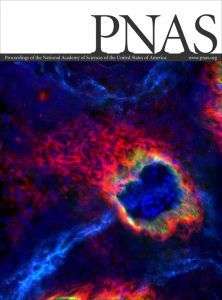American neuroscientists urged government officials to make room for scientific cooperation in the new framework of relations that is being shaped between Cuba and the United States.
“There is more to this new openness than simply enabling American owned businesses to establish themselves along Havana’s seaside Malecon esplanade, or allowing United States tourists to once again enjoy the beautiful Playa Paraiso and Playa Sirena,” wrote the group of scientists, headed by Mark Steven Cohen, from the Center for Cognitive Neuroscience of the University of California.
The opinion article was published in the Proceedings of the National Academy of Sciences of the United States of America (PNAS), one of the most important scientific journals in the world.
Interviewed by OnCuba via email, Mr. Mark Cohen, said that the article started as a letter that was initially sent to PNAS, before anyone could have imagined that the United States and Cuba would come to an agreement to start talks to normalize relations.
“We wrote the letter before Mr. Obama’s historic announcement, with a different slant,” he said, “suggesting that we could improve scientific exchange even if the rest of the policy was in place. When Obama moved to open relations, just a few days later, we re-framed the letter.”
“It was very important that it appeared in a very high impact journal,” he added. “The Proceedings of the National Academy of Sciences is one of the best-respected journals in the world. Our hope is that by putting it there, we would receive strong press coverage that might influence U.S. lawmakers.”
In October 2014, Cohen and other 35 foreign researchers travelled to Havana to attend the inauguration of a new research facility at the Cuban Neuroscience Center (CNEURO, for its Spanish acronym), and the celebrations for the 24th anniversary of its foundation.
Mr. Cohen’s invitation came from his friend and collaborator, Pedro Valdes-Sosa, CNEURO General Vice-Director for Research, and a member of the Cuban Academy of Sciences (ACC).
The next step then was to secure the required clearance to travel to Cuba, a process that according to Cohen was tortuous.
“It was very tedious to get the permits,” he said, “requiring a fair amount of bureaucracy. It was not possible to get a standard permit for this from the U.S. government, as these take months to obtain and there wasn’t sufficient time for that. I was able, however, to obtain a permit under the general license for scientists.”
In addition to the annoyance of dealing with the bureaucratic apparatus, the travellers had to experience other inconveniences as a consequence of the delay, such as not having the opportunity to buy plane tickets at reasonable prices.
“The flights became VERY expensive, because I could not make travel arrangements until the permits had cleared, which meant booking at the last minute,” said Cohen.
Additionally, having Cuba as a destination meant that they could not cover those expenses with institutional resources.
“I paid for the trip from personal funds,” he added, “as there was no possibility of using support from the grants that fund my research due to the embargo.”
During the three days they were in Cuba, they witnessed first-hand what they would describe as “Cuban enthusiasm for biomedical science”.

“Our Cuban colleagues have been leading contributors to the international scientific community,” they wrote, highlighting the achievements of Cuba in the fields of biotechnology and the biomedical sciences, as well as the opportunities available for U.S.-Cuban partnerships in atmospheric sciences, geology, computational biology, and oncology nursing.
In reference to the obstacles the U.S. embargo has meant so far for scientific cooperation, they said that those political barriers are “artificial, arbitrary, even demeaning to both Cuban and U.S. scientists, and are a source of awkwardness in the greater worldwide community of scientists.”
So far dominated by political and economic interests, U.S.-Cuba talks could benefit from the input scientists from both countries could provide, something that would help to ensure that new policy agreements take such opportunities for scientific benefit into account.
On behalf of the scientific community, the authors of the article asked the government to explore immediately available and longer-term steps, such as “addressing the sharing of scientific data, tools, and technological resources, professional development opportunities, and an explicit policy statement that U.S. scientists are permitted to be reimbursed from their federal grants for scientific travel to Cuba.”
The recent agreement reached during the visit of Governor of New York Andrew Cuomo to Cuba, between the Roswell Park Cancer Institute of Buffalo, and Cuba’s Center for Molecular Immunology to develop a lung cancer vaccine and conduct a clinical trial in the United States, is but an example of the potential benefits of helping scientists to connect on each side of the border.










